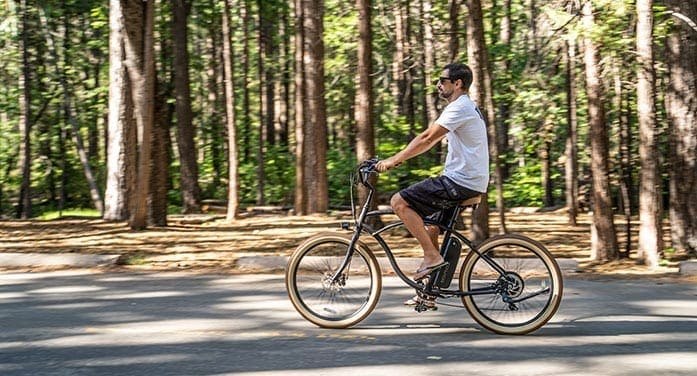 Vancouver city council is considering a motion this week to turn sections of Granville Street and Commercial Drive into European-style pedestrian-friendly malls by reducing or eliminating automobile access. This is described as putting people over cars.
Vancouver city council is considering a motion this week to turn sections of Granville Street and Commercial Drive into European-style pedestrian-friendly malls by reducing or eliminating automobile access. This is described as putting people over cars.
Reducing car traffic leads to cleaner air and quieter neighbourhoods – good things. Some local businesses will benefit.
But business as a whole won’t benefit.
Michael Goldberg, past dean of business at the University of British Columbia, tells us that the prosperity of cities is partly determined by how easy it is to get around. Given that Vancouver doesn’t have an efficient, comprehensive public transit system, reducing automobile access harms many businesses.
But won’t people benefit from a greener, more car-free city, with more of the kind of outdoor amenities one usually associates with being on holiday?
Some will but we need to ask which people will benefit?
Vancouver is often at or close to the top of lists of best places to live. Changes to public spaces have been made to keep us there or make the city even better. Unfortunately, many of these changes have benefited the richer people in the city at the expense of the less well-off.
Here’s are some examples:
A friend who lives on Kitsilano Point in Vancouver used to like to walk along the beach, seeing multi-generational families enjoying picnics and games. Often they were new Canadians who still spoke in their mother tongues. Then paid parking was introduced, and those families no longer came to enjoy the park and the beach. Like many new immigrants, they had low incomes, and the cost of parking was enough to exclude them from a favourite picnic spot.
Very close to Kitsilano Point is Point Grey Road. A few years ago, through traffic was eliminated from the section of that road that runs through Kitisilano. The reason offered was to reserve the street for bikes and pedestrians. The fact that, at great cost to all taxpayers, it also made the area quieter for the wealthy people who lived there wasn’t mentioned.
I jog on that street. Since the change, I haven’t seen a significant increase in bikes or foot traffic. Car traffic has increased on other east-west corridors such as Fourth Avenue.
A real improvement for joggers, walkers and bicycle riders – who now have to leave the beach and hit the streets to go through Kitsilano – would have been to continue the waterside path that goes along the beach west and east of Kitsilano. But that would deprive the very comfortable people who live there of the illusion that they have exclusive access to the waterfront, which by law and custom is public property.
The Vancouver parks board has the important responsibility of providing the green spaces that make a city livable. However, it seems to be doing it only for a tiny segment of Vancouver’s inhabitants – those who ride bicycles.
The board has announced that it has the long-term goal of eliminating cars from Stanley Park. It’s moving in the same direction in other parks, removing parking, picnic and play space to make room for often redundant bicycle paths.
The vast majority of Vancouver citizens don’t ride bicycles. There are many reasons for this:
- Lots of us are older and/or infirm.
- Many have babies and little kids who aren’t easily managed on a bicycle.
- It’s difficult to carry much on a bicycle. Think of a picnic basket or a cooler for a trip to a park. Hard to say how Grandma and the babies will get there as well.
Some Vancouverites who can’t bike to a park for a picnic can afford to visit a restaurant patio for a meal out. These are the folks who will benefit from those European-style malls on Granville and Commercial. But many people don’t have incomes that stretch that far.
I was planning to suggest that we donate the money we’re saving during the pandemic by not eating out. But I was reminded that many people, even in good times, don’t have the money to eat out regularly or at all. Think of the people who can’t afford the parking at Kitsilano Beach.
These are the people who aren’t likely to have yards and gardens and open spaces around their homes. These are the people who the parks board and city council should be thinking of when they plan changes to public spaces. Make sure we keep the city livable for them.
Troy Media columnist Roslyn Kunin is a consulting economist and speaker. For interview requests, click here.
The views, opinions and positions expressed by columnists and contributors are the authors’ alone. They do not inherently or expressly reflect the views, opinions and/or positions of our publication.
© Troy Media
Troy Media is an editorial content provider to media outlets and its own hosted community news outlets across Canada.

